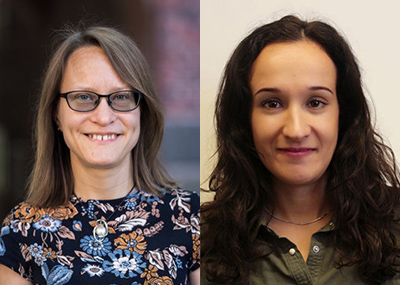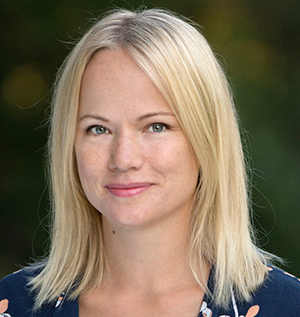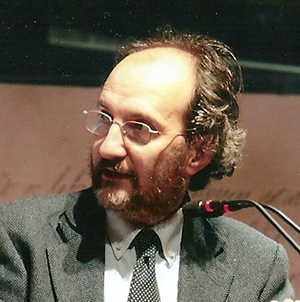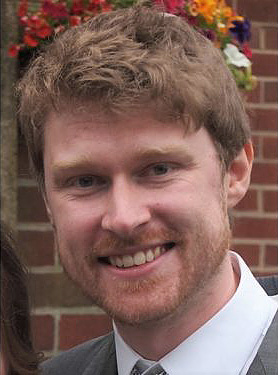Spotlight on Research
Who has received what when it comes to funding? What findings and results are being published in academic journals? Under the heading Spotlight on Research, we present the latest news about KTH researcher successes.
Prestigious grants to young researchers

Two young researchers at KTH, Maria Cuartero and Outi Tammisola , have been awarded the European Research Council, ERC’s prestigious Starting Grant. Maria Cuartero, who is researching applied physical chemistry, has received SEK 17 million for a project aimed at investigating and developing ion sensing. The goal is to develop a new type of sensors to be used in fields such as pharmaceutical analysis, cell therapy, and water monitoring. Outi Tammisola receives SEK 16 million for a flow mechanics project. The goal is to increase the understanding of complex flows through analysis and simulations. Through increased knowledge, the research can be used within the food industry, 3D printing, and improved prediction of natural disasters, such as landslides resulting from climate change.
Ethics and self-driving cars
Kristina Höök , Professor in interaction design, has received a SEK 6 million grant for further research into ethical aspects of the development of autonomous systems such as drones and self-driving cars. The project, "Ethics as Enacted through Movement – Shaping and Being Shaped by Autonomous Systems", is interdisciplinary and integrates humanities, social sciences, and interaction design. The funds are provided by the Marianne and Marcus Wallenberg Foundation and are part of the WASP research programme.
Facebook founder supports protein research

Human Cell Atlas, the international mapping of all our cells, has received a USD 68 million dollar grant from the Chan Zuckerberg Initiative. The organisation is funded by the Facebook founder Mark Zuckerberg and his wife Priscilla Chan. The survey engages hundreds of researchers worldwide. Emma Lundberg , researcher at KTH and Science for Life Laboratory who is leading a Swedish cell mapping project is one of those who will receive the grant in a collaboration with Matthias Mann, professor at the University of Copenhagen and Peter Horvath professor from the Hungarian Academy of Sciences.
The Center for X-rays in Swedish materials science has been inaugurated
The research centre, aimed at increasing the knowledge of synchrotron light in materials science, has been inaugurated at KTH. The centre, which is a joint project with Linköping University and the DESY research lab in Hamburg, will organise workshops and disseminate knowledge to researchers throughout Sweden in order to make the use of synchrotron light known in new research fields.
CEXS, which is managed by senior lecturer Peter Hedström , promotes Swedish interests at the synchrotron light source PETRA III in Hamburg where the Swedish Research Council has funded equipment worth SEK 100 million. The equipment in Hamburg complements the MAX IV facility in Lund, and allows Swedish researchers to use high-energy x-rays.
Environmental historian becomes head of environmental organisation

Marco Armiero , senior lecturer at the Division of History of Science, Technology and Environment at KTH, has been appointed as the head of the European Society for Environmental History, a network which aims to strengthen environmental history as an academic field. Marco Armiero is also the head of the Environmental Humanities Laboratory at KTH, a project which gathers humanities research focusing on climate and environmental issues and sustainable development. KTH researcher Kati Lindström, who is active at the same division, has also been appointed to the network as coordinator for the Baltic countries.
Computer researcher recognised for programming language
Philipp Haller , senior lecturer at KTH, has received the Programming Languages Software Award in recognition of his software development. The award is handed out by the ACM Special Interest Group on Programming Languages (ACM SIGPLAN). Philipp Haller has developed Scala, a programming language that combines functional programming with object orientation. Companies that use Scala include Twitter, Linkedin, Apple, Netflix, Nike, SAP, Spotify, Starbucks and Tesla. Scala has also had a major positive impact on programming research as a whole.
Award for life cycle analysis

James Joyce , postdoc at KTH specialising in life cycle analysis, has received the SETAC Europe Young Scientist LCA Award. Joyce, active at the Department of Sustainable Development, Environmental Science and Engineering (SEED), has according to SETAC made valuable contributions to the research field through his thesis, which he presented at KTH. The honour is awarded for increasing our knowledge of how life cycle analyses can be developed and implemented within environmental research.
Software researchers coming to KTH
Researchers, engineers, and students will be treated to cutting-edge, pioneering research within software development when the CASTOR centre at KTH, along with Saab and Ericsson, hosts the Software Days event. More than 20 speakers are participating, including Daniel Stenberg, creator of cURL and libcurl, and David Basin, Professor of information security at ETH Zurich.
The event, which touches on fields such as DevOps, Safety and Security, and Large-Scale Distributed Systems, takes place on 14-16 October and is headed by
Benoit Baudry
, Professor and head of CASTOR.
Sign up
before 7 October.
Text: Christer Gummeson